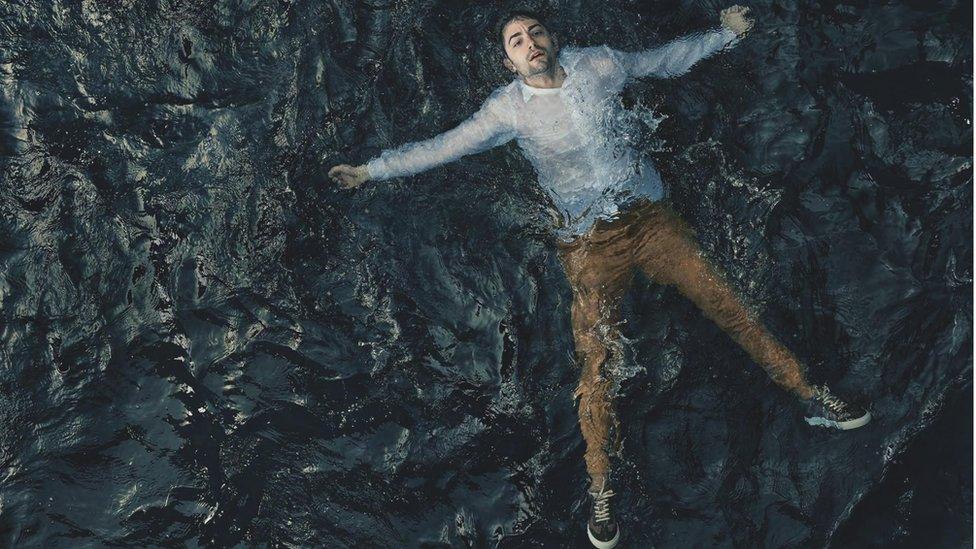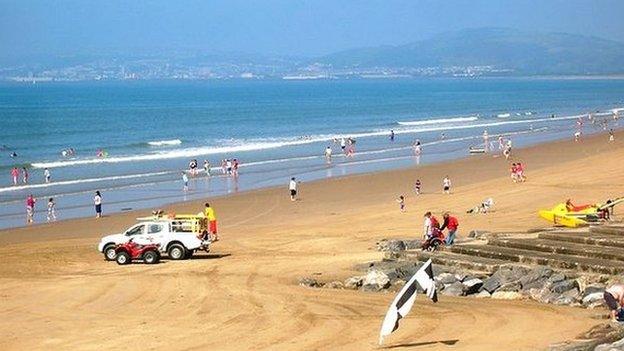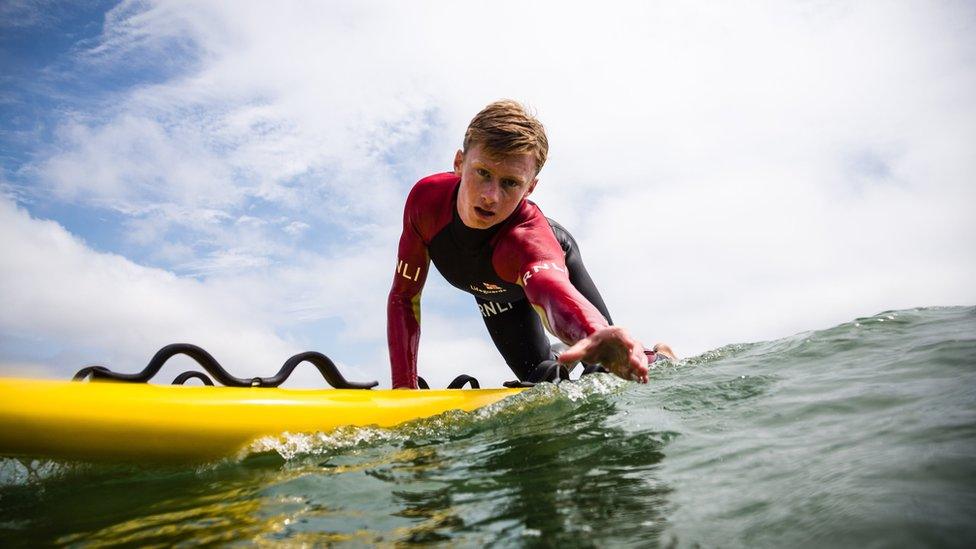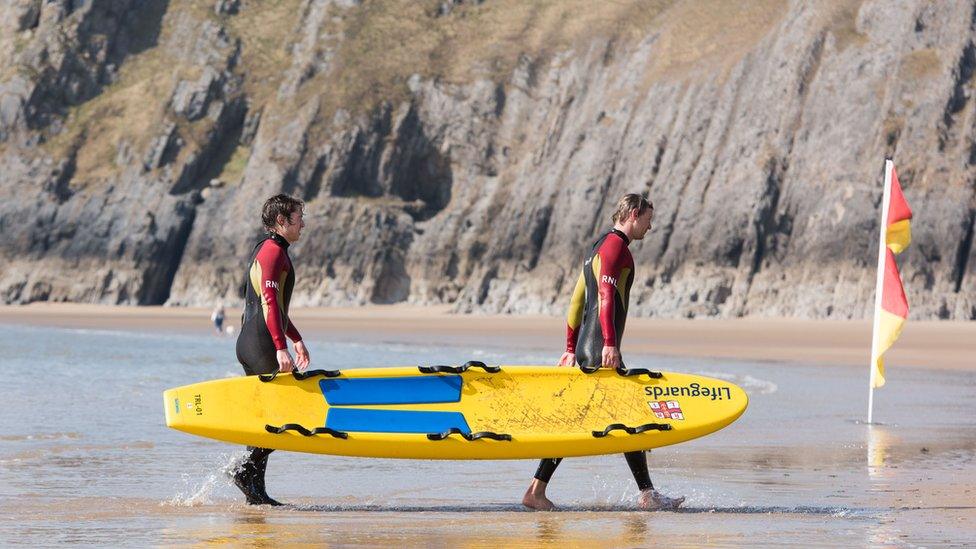RNLI cold water shock 'floating' campaign launched
- Published
Watch BBC reporter Natalie Crockett try out the RNLI floating technique
Advice has been issued on how to avoid cold water shock, as the latest figures show 17 people died around the coast of Wales last year.
RNLI data shows 55% of people in Wales would try to swim, would panic or remove clothing if they fell unexpectedly into water.
The charity is calling on people to fight these instincts and remember one potential life-saving skill - floating.
Doing this for 60-90 seconds helps calm breathing, increasing survival chances.
RNLI said sudden immersion in cold water often triggers uncontrollable gasping and an instinct to swim hard, which can quickly lead to drowning.
Instead, it said people should float on their back until the effects of cold water shock pass, allowing time to catch your breath, before then trying to swim to safety or calling for help.
The campaign is particularly targeted at adult men, who account for 75% of the coastal deaths in Wales over the past five years and 65% of last year's fatalities.

Prof Mike Tipton, a Human and Applied Physiology lecturer at the University of Portsmouth, said: "As little exercise as necessary can be undertaken to help stay afloat. The recommended floating position is to lean back in the water and keep your airway clear. Keeping calm will help maintain buoyancy.
"The main principle is to do as little as possible until you have control of your breathing.
"At this point you have a much better chance of avoiding drowning and surviving until you can swim to safety, call for help, or continuing to float until help arrives."
Matt Childs, RNLI volunteer Community Safety Officer, advised anyone who wished to swim outdoors to choose a lifeguarded beach.
He added anyone who sees someone in danger should fight the instinct to rescue them and instead call 999 for the Coastguard.
- Published24 July 2014

- Published2 April 2017

- Published14 April 2017

- Published21 March 2016
